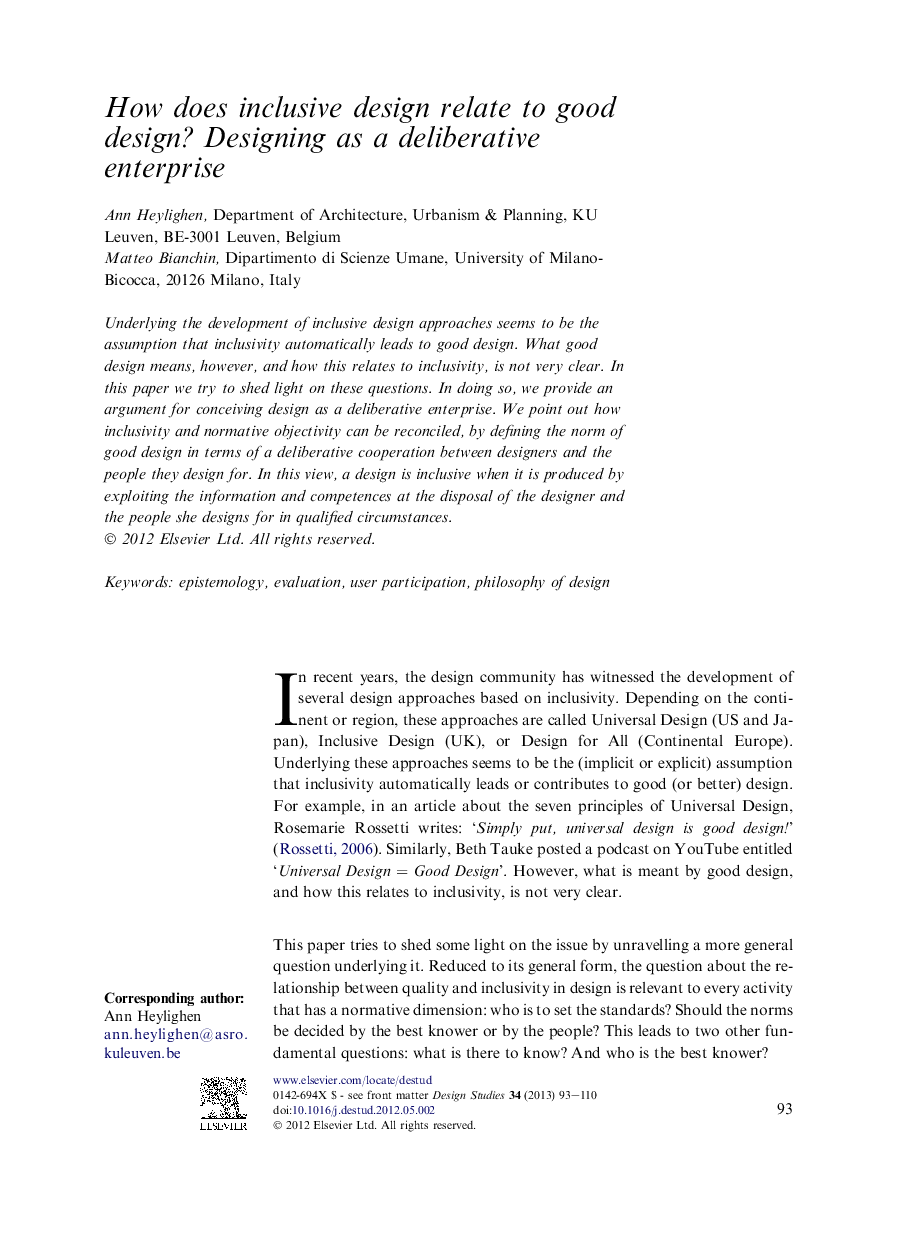| Article ID | Journal | Published Year | Pages | File Type |
|---|---|---|---|---|
| 261496 | Design Studies | 2013 | 18 Pages |
Underlying the development of inclusive design approaches seems to be the assumption that inclusivity automatically leads to good design. What good design means, however, and how this relates to inclusivity, is not very clear. In this paper we try to shed light on these questions. In doing so, we provide an argument for conceiving design as a deliberative enterprise. We point out how inclusivity and normative objectivity can be reconciled, by defining the norm of good design in terms of a deliberative cooperation between designers and the people they design for. In this view, a design is inclusive when it is produced by exploiting the information and competences at the disposal of the designer and the people she designs for in qualified circumstances.
► We analyse the relationship between inclusive design and good design. ► We unravel the more general questions underlying this relationship. ► We provide arguments for design as a deliberative enterprise involving designers and users. ► We point out that the definitions of inclusive design approaches are underdetermined.
